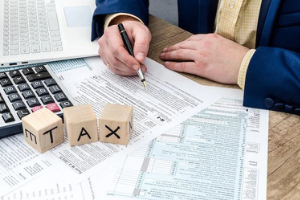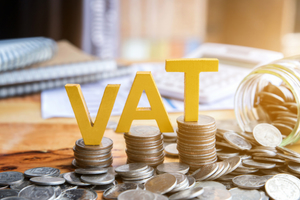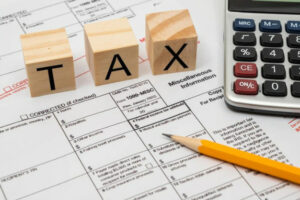EXCISE TAX
ADVISORY
SERVICES IN
SAUDI ARABIA
Our Excise Tax advisory service in Saudi Arabia is part of our tax consultancy services in Saudi Arabia.
Excise Tax is an indirect tax set on specific goods; it is imposed within government policies rather than being an international tax imposed across countries. It is primarily considered as a business tax; a tax paid by the businesses; producers, importers, or an intermediary; and not by the consumer although it usually induces an indirect increase in price for consumers. It can be set and paid as a fixed percentage rate assessed on the value of certain goods referred to as “ad valorem” or as a specific fixed amount.
Excise Tax is typically imposed in the country where and at the time when the Excise goods are consumed; applied on the retail price affecting the price of the excisable goods for final consumers; thus, referred to as a consumption tax.
WHO IS EXEMPT FROM PAYING EXCISE TAX?
- Diplomatic and consular bodies, international organisations, and heads and members of diplomatic and consular corporations.
- Excise goods brought in by travellers entering the country provided that these goods are of non-commercial use, and they are within the allowance specified in the Customs Law.
- Excise goods sold in departures Duty-free shops and onboard consumption.
TYPES OF EXCISE GOODS IN SAUDI ARABIA
- Tobacco related products.
- Soft drinks.
- Energy drinks.
- Sweetened drinks.
- Electronic devices and tools related to smoking, vaping and similar activities.
- Liquid consumed in electronic devices used in smoking, vaping and similar activities.
WHAT IS THE EXCISE TAX RATE IN KSA?
Excise Tax was introduced in KSA on 11 June 2017, the implementation and administration of Excise Tax is under the authority of Zakat, Tax, and Customs Authority (ZATCA) in KSA. For some excise goods, ZATCA specifies the minimum value to be applied.
The Excise Tax is set on an ad valorem basis as shown in the following table:
The Excise Tax rate is levied on the value of the excise good which is known as the Tax base. The Tax base is determined by comparing the Retail Sale Price of the good at the time of sale to the consumer and the Standard Price (minimum price) of the good as agreed and set periodically by the GCC Tax Authorities. The Tax base will refer to the price of higher value.
DISCLOSURE OF EXCISE TAX AND PAYMENT
An Excise Tax payment is submitted online along with providing the following information: the Category of the Excise good, description and brand, unit of measure, quantity of goods, and the Retail Sales Price per unit of measure. SADAD will provide the amount of Excise Tax due, which need to be paid within 45 days from the date of which the Excise Tax has become due.
VIOLATION OF DISCLOSURE OF EXCISE TAX
Penalties are imposed for failure to comply with ZATCA Excise Tax regulations, including the following:
EXCISE TAX ADVISORY IN SAUDI ARABIA FAQs
Excise tax serves multiple purposes, including generating government revenue, discouraging the consumption of unhealthy or environmentally harmful products, and promoting public health. It is a tool used by the government to influence consumer behavior and cover the social costs associated with the consumption of certain goods. If you’d like to learn more about how excise tax can affect your business, contact us for expert insights.
Although businesses are responsible for paying excise tax, the cost is typically passed on to consumers, leading to higher retail prices. This means consumers ultimately bear the cost of the tax when purchasing excise goods. For strategies on how to effectively price your products while considering excise tax, reach out to our advisory team.
Businesses must ensure they are registered with ZATCA, maintain accurate records of all transactions involving excise goods, file periodic tax returns, and make timely payments. Compliance also includes adhering to reporting requirements and providing necessary documentation during audits. Need help with compliance? Let us guide you through the process.
Late payment of excise tax can lead to penalties, including interest on the outstanding amount, additional fines, and potential legal action. Timely payment is essential to avoid these repercussions. For assistance with payment schedules and avoiding penalties, don’t hesitate to contact us.
Businesses can ensure compliance by regularly reviewing their tax obligations, maintaining thorough documentation, and seeking advice from tax professionals. Regular training for staff involved in tax reporting and accounting can also be beneficial. Let us help you establish effective compliance practices — get in touch today!
Yes, businesses dealing with multiple categories of excise goods should be aware of the different tax rates and compliance requirements for each category. They must accurately track sales and ensure correct tax calculations for each type of product. Contact us for tailored strategies to manage diverse excise goods effectively.
Businesses should maintain comprehensive records that include sales invoices, tax returns, proof of payment, inventory records, and documentation related to the purchase and sale of excise goods. These records should be kept for a specified period as mandated by ZATCA. If you need guidance on record-keeping best practices, reach out to our team.
ZATCA periodically reviews and updates excise tax regulations based on economic conditions and government policies. Businesses should stay informed about these updates to ensure ongoing compliance.
If a business discovers an underreporting issue, it should immediately consult with a tax professional to assess the situation. The business may need to file an amended tax return and pay any outstanding taxes along with potential penalties. Our experts can assist you in addressing underreporting issues — contact us for support.
Yes, businesses have the right to dispute penalties imposed by ZATCA. They must provide evidence and documentation to support their case. The appeals process usually involves submitting a formal request for review within a specific timeframe. If you need help navigating the dispute process, let us know—we’re here to assist!
ZATCA is responsible for the implementation and enforcement of excise tax laws. This includes providing guidance to businesses, conducting audits, ensuring compliance, and addressing any violations of tax regulations. For clarity on your compliance obligations, connect with our advisory team today.
Businesses can stay informed by subscribing to updates from ZATCA, attending relevant workshops and seminars, and following industry news. Engaging with tax professionals can also provide timely insights on regulatory changes. We can help keep you informed—reach out to learn about our monitoring services.
Common challenges include staying up to date with regulatory changes, managing the complexities of calculating and reporting tax for multiple products, and maintaining accurate records to withstand audits. Our consultants can help you overcome these challenges—contact us for assistance.
Businesses should conduct internal audits to ensure all records are accurate and up to date. Having organized documentation readily available, training staff on compliance procedures, and consulting with tax professionals can help prepare for a formal audit by ZATCA. For a comprehensive audit readiness assessment, get in touch with our team.
To implement compliance processes, businesses should assess their current practices, establish clear procedures for tracking and reporting excise tax, train employees, and utilize accounting software that accommodates excise tax calculations. Need help setting up these processes? Let our experts guide you!
Yes, excise tax rates can change based on government policy. Businesses would typically be notified through official communications from ZATCA, public announcements, and updates to tax legislation. Stay ahead of changes—contact us for proactive updates and support.
Generally, excise tax rates are set by the government and are not negotiable. However, businesses may be able to discuss specific circumstances with ZATCA, especially if they face significant financial hardship. If you have concerns about your tax burden, reach out for tailored advice.
Businesses should consider the total cost of excise tax when pricing their goods. It’s important to factor in the excise tax to ensure profitability while remaining competitive in the market. Let us help you develop a pricing strategy that accounts for excise tax — contact us today!
Businesses can find resources on excise tax through the ZATCA website, industry associations, tax consultancy firms, and government publications that provide guidelines and updates on tax policies. For customized resources and expert advice, contact our team today!
Businesses can offer training sessions that cover the basics of excise tax, compliance requirements, record-keeping practices, and how to handle audits. Regular workshops and updates on regulatory changes can also be beneficial. We offer training programs tailored to your business needs — get in touch to learn more!














